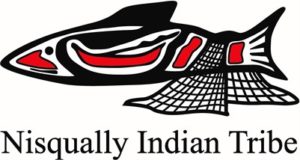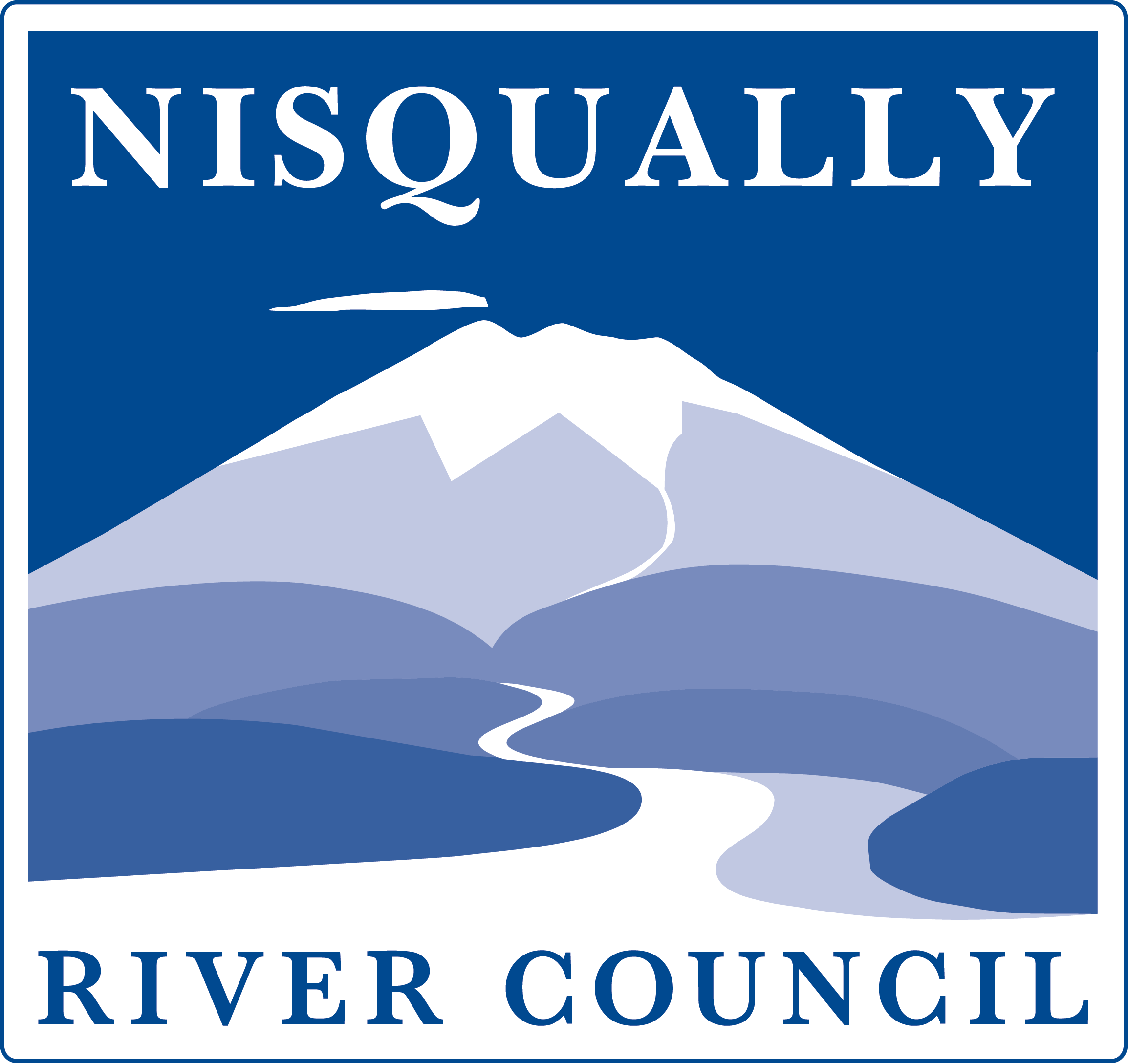We acknowledge that we are on the traditional and ancestral lands of the Nisqually people, or “Squally-Absch.”
Squally-Absch means “People of the River, People of the Grass.” Nisqually people have inhabited and stewarded these lands Since Time Immemorial. Traditional villages have been found from the shores of the Salish Sea, along the Nisqually and Mashel Rivers, to the slopes of Mount Rainier, and all throughout the Nisqually watershed.
Salmon historically ran year round in the river, and continue today to be a cultural and economic staple of the Tribe. In winter months, along the Nisqually estuary, tribal people said “when the tide is out, the table is set.” They could easily harvest the abundance of shellfish, including oysters, clams, crab, and more. As spring came, the Nisqually would follow the ripening berries, the deer and elk, and migrate upwards towards the mountain. Camas, wild berries, crab apples, and other wild plants are still traditionally gathered.
In 1854 the U.S. government signed the Medicine Creek Treaty with several Indian tribes. Brothers Quiemuth and Leschi were designated as Nisqually “Chiefs.” Leschi opposed the terms of the treaty and argued for better reserves – after failed meetings, the Puget Sound Indian Wars began. Quiemuth was murdered and Leschi was executed because of their involvement. A Historical Court of Inquiry exonerated Leschi in 2004.
One of the most famous Nisqually tribal leaders was Billy Frank Jr. He fought tirelessly for the rights to hunt and fish in usual and accustomed areas that were promised in the treaty. After Billy and other activists were arrested more than 50 times in the Fish Wars of the 1960s and 70s, the tribes were victorious in federal court in 1974, with the Boldt Decision establishing the 20 treaty tribes in Western Washington as co-managers of salmon in our state, and reaffirming tribal rights to half of the harvest. This has given the tribes powerful leverage in habitat preservation and conservation of our natural resources. Billy went on to become the chairman of the Northwest Indian Fisheries Commission for more than 30 years. He was also instrumental in creating the Nisqually River Council. Billy passed in 2014. In 2015, he received the Presidential Medal of Freedom from President Obama. The following month, the Nisqually National Wildlife Refuge was renamed in his honor through Congressman Denny Heck’s “Tell Your Story” Act.
The Nisqually Tribe continues to restore and celebrate their culture through revival of their language and traditions, including the sponsorship of the 2016 Tribal Canoe Journey. The Nisqually Indian Tribe continues to lead in the stewardship of the Nisqually Watershed today, championing the fight for salmon recovery in the Nisqually and the greater Puget Sound region.
Visit the Nisqually Indian Tribe’s website here.

